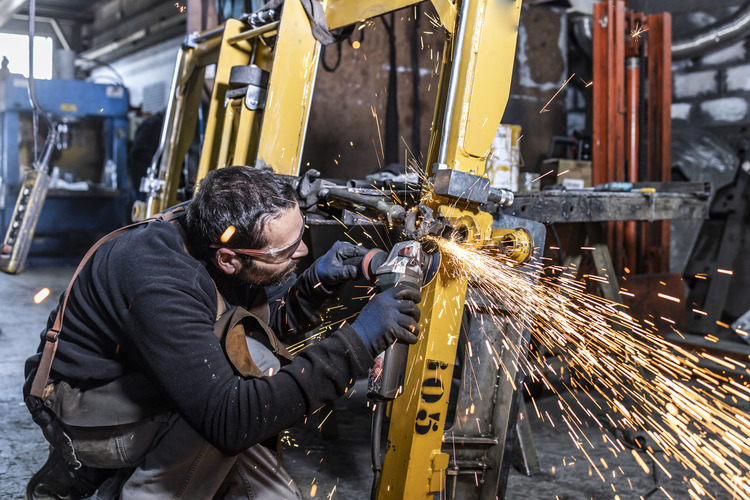How workers’ comp treats hearing loss claims
Workers' Compensation - March 25, 2025 by Horwitz, Horwitz & Associates
Hearing loss is a common occupational hazard, particularly in industries where employees are exposed to high noise levels or hazardous conditions. Whether the hearing loss occurs suddenly due to a traumatic event or gradually from prolonged exposure, it can have a profound impact on your quality of life and ability to work. Fortunately, workers’ compensation may provide benefits for hearing loss caused by your job.
Below, our Chicago workers’ compensation attorneys discuss how workers comp hearing loss claims are treated in Illinois, what benefits may be available, and how Horwitz, Horwitz & Associates can help you pursue the compensation you deserve.

Understanding workers’ comp hearing loss claims
Under Illinois workers’ compensation laws, employees who experience hearing loss due to workplace conditions are generally entitled to compensation. Hearing loss can be categorized in two ways:
- Traumatic hearing loss: Caused by a single, sudden event, such as an explosion or equipment malfunction.
- Occupational hearing loss: Resulting from prolonged exposure to harmful noise levels, such as machinery, power tools, or industrial equipment.
Illinois’ workers’ compensation laws, as outlined in the Illinois Workers’ Compensation Act, provide coverage for hearing loss if it is directly related to your work environment or duties.
Common causes of workplace hearing loss
Hearing loss in the workplace can result from a variety of factors, including:
- Prolonged exposure to noise: Machinery, construction equipment, or manufacturing processes can produce noise levels above 85 decibels, which is considered hazardous over time.
- Acoustic trauma: Sudden loud noises, such as explosions or machinery failures, can cause immediate hearing damage.
- Ototoxic chemicals: Certain workplace chemicals, like solvents and heavy metals, can damage the inner ear and lead to hearing loss.
- Lack of protective equipment: Failure to provide or enforce the use of hearing protection, such as earplugs or earmuffs, can contribute to hearing loss.
Employers are required by OSHA (Occupational Safety and Health Administration) to implement measures that reduce noise exposure and provide protective equipment. When these safeguards fail, workers may have a valid claim for hearing loss under workers’ comp.
Filing a workers’ comp hearing loss claim in Illinois
You’ll need to follow specific steps to file a successful workers’ comp hearing loss claim.
1. Report the injury promptly
Under Illinois law, you must report your hearing loss to your employer within 45 days of becoming aware of the injury. For gradual hearing loss, this timeline typically begins when a doctor diagnoses the condition and links it to your workplace.
2. Seek medical evaluation
A hearing test performed by an audiologist or physician will determine the extent of your hearing loss and whether it is work-related. Documentation from a qualified medical professional is critical for your claim.
3. File a workers’ compensation claim
Your employer is responsible for submitting your claim to their workers’ compensation insurance carrier. If they fail to do so or deny your claim, you can file a claim directly with the Illinois Workers’ Compensation Commission (IWCC).
4. Consult an attorney
Workers’ comp claims for hearing loss can be complex, especially when employers or insurers dispute the cause of the injury. A workers’ comp attorney can help gather evidence, negotiate with insurers, and represent you in hearings before the IWCC.
Benefits available for workers’ comp hearing loss claims
In Illinois, workers’ compensation benefits for hearing loss may include:
- Medical expenses: Coverage for doctor visits, audiology tests, hearing aids, and other treatments.
- Temporary total disability (TTD): If your hearing loss requires time off work for treatment, you may receive wage replacement benefits.
- Permanent partial disability (PPD): Compensation for the long-term impact of hearing loss, calculated based on the severity of the injury and its effect on your ability to work.
- Vocational rehabilitation: If hearing loss prevents you from performing your current job, you may be eligible for training or assistance in finding a new role.
How Horwitz, Horwitz & Associates can help
For more than a century, Horwitz, Horwitz & Associates has been a trusted advocate for injured Illinois workers. If you’re dealing with hearing loss caused by your job, we can:
- Investigate your workplace conditions to identify hazards.
- Work with medical experts to document your hearing loss.
- File your workers’ comp claim and appeal any denials.
- Fight for the maximum compensation available under Illinois law.
Did you lose your hearing at work? Call us.
Workplace hearing loss can have a lasting impact on your life and livelihood, but you don’t have to face it alone. Understanding how workers comp hearing loss claims work is the first step toward securing the compensation you need to move forward.
If you’re dealing with hearing loss from your job, contact Horwitz, Horwitz & Associates for a free consultation. We’ll review your case, explain your rights, and guide you through the workers’ comp process. Call us today at (800) 985-1819 or visit us online to get started.


